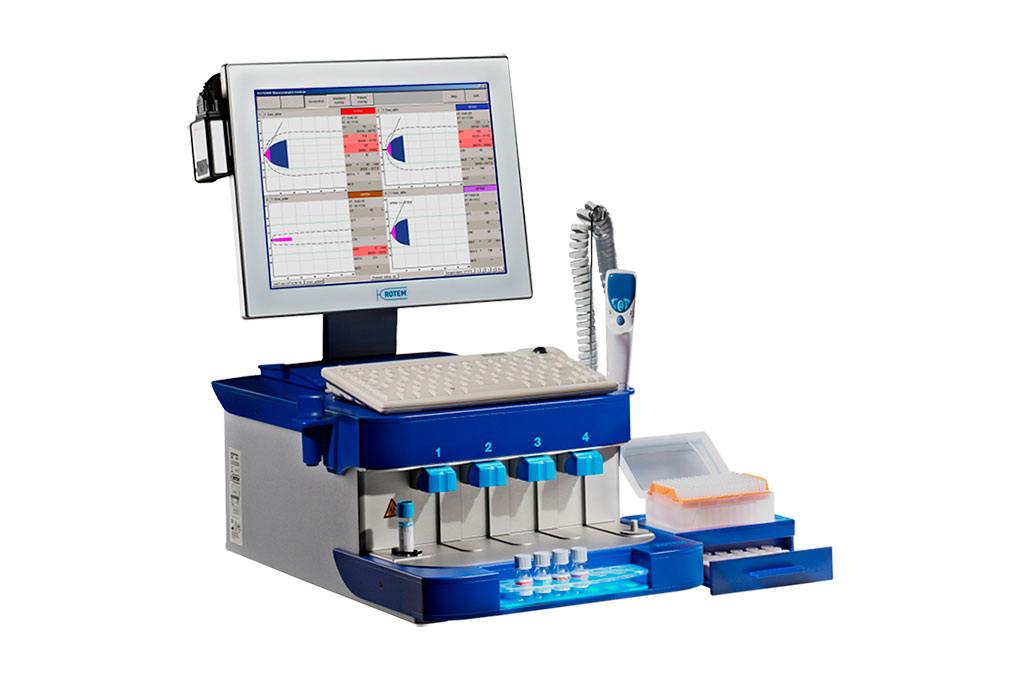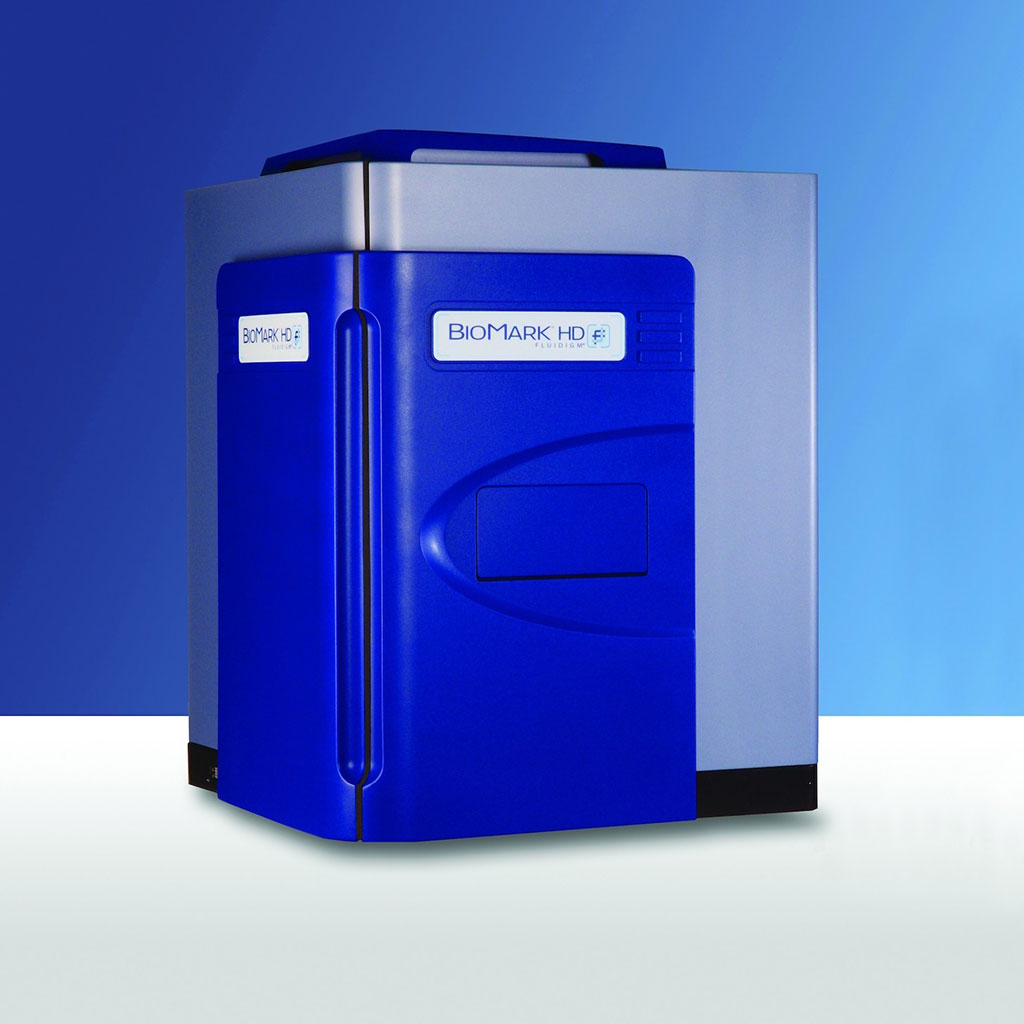Thromboelastometry Predicts Thromboembolic Events in COVID-19 Patients
Posted on 06 Jul 2022
In addition to severe pulmonary and renal injury, abnormality of hemostasis is recognized as a contributing factor to the severity of the COVID-19. Thromboembolic complications were diagnosed in 31% of patients with COVID-19 infection admitted to an intensive care unit, despite anticoagulation therapy.
Assessment of hemostasis with traditional plasma coagulation tests (e.g., prothrombin time, activated thromboplastin time) is often not helpful because they evaluate only the initial phase of clot formation and frequently do not demonstrate significant abnormality. Viscoelastic tests (e.g., thromboelastography (TEG), rotational thromboelastometry (ROTEM), or ClotPro) were developed to assess in real time all stages (dynamic) of clot formation and fibrinolysis using whole blood samples.

Clinical Scientists at the Warren Alpert Medical School of Brown University (Providence, RI, USA) and their colleagues carried out a prospective cohort study that included 25 patients and inclusion criteria were a positive PCR COVID-19 test result and respiratory insufficiency requiring supplemental oxygen. The primary outcome was defined as an unfavorable course of the disease if a patient: (1) developed a thromboembolic event while receiving anticoagulation prophylaxis, (2) had prolonged ICU stay, or (3) died.
Rotational thromboelastometry was performed by trained personnel using a ROTEM delta device (TEM Innovations GmbH, Bedford, MA, USA). The following ROTEM tests were performed: (1) EXTEM assay consisting of recombinant tissue factor and Polybrene (heparin inhibitor) added to re-calcified whole blood to activate the extrinsic pathway and initiate coagulation, (2) In the FIBTEM assay, the contribution of platelets to clot formation is eliminated allowing to assess fibrinogen contribution (functional fibrinogen) to hemostasis. It is performed by an addition of recombinant tissue factor, polybrene and platelet inhibitor cytochalasin D added to the whole blood sample to activate the extrinsic pathway while suppressing platelets.
The investigators reported that there were 16 patients with an unfavorable course of the disease. Compared to the nine patients in the favorable course group, patients with an unfavorable course had a lower platelet count, median difference of 154 × 109/L (95% CI, 26 to 223 × 109/L), and lower clot firmness parameters in EXTEM assay: amplitude at 20 minutes (A20), median difference of 7, maximum clot firmness (MCF), median difference of 6 and area under the curve (AUC) with a median difference of 671. They also demonstrated suppression of fibrinolysis: higher lysis index 60, median difference of − 3. Results of functional fibrinogen (FIBTEM) assay were similar between the groups.
The authors concluded that the platelet count and the results of EXTEM assay, but not FIBTEM assay, were associated with the difference in clinical outcome among patients with COVID-19 infection and hypoxemia. The study was published on June 28, 2022 in the Journal of Blood Medicine.
Related Links:
Warren Alpert Medical School of Brown University
TEM Innovations GmbH














